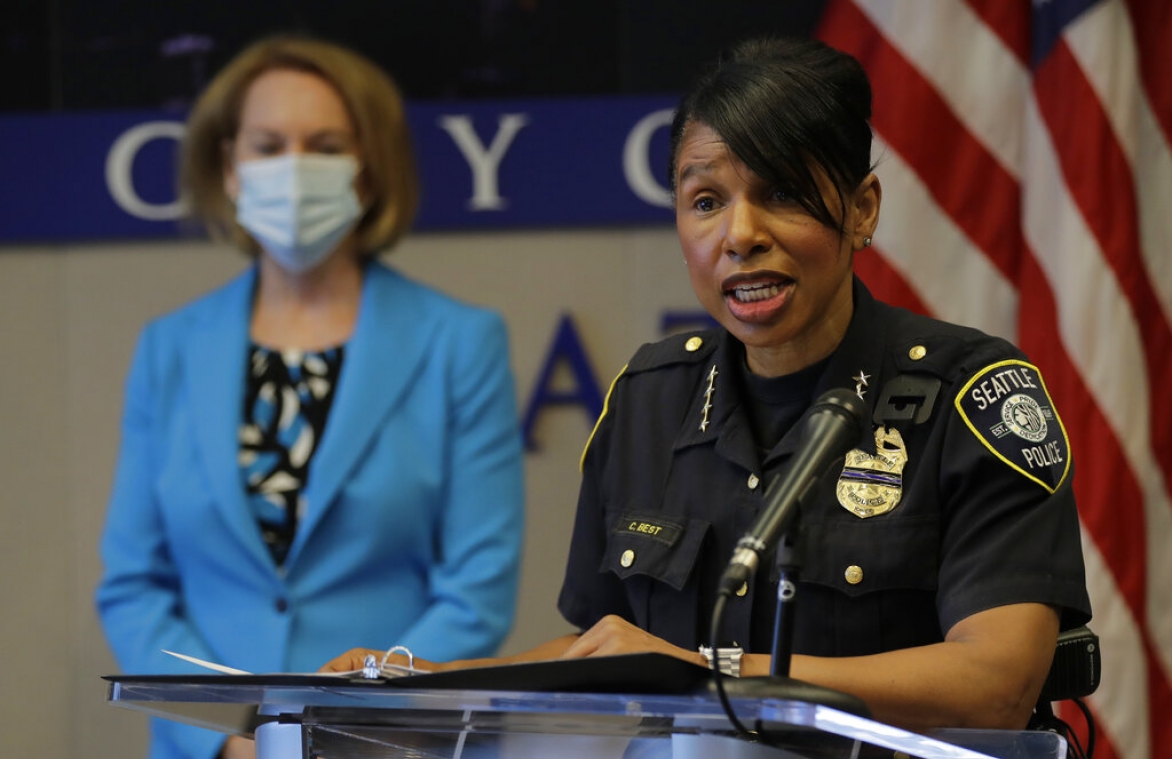Two Seattle police officers had their defamation claims against a Seattle councilwoman reinstated by a federal appeals court panel. Although the councilwoman did not name the officers, the panel said, some readers of news reports reasonably could interpret her comments as being “of and concerning” them.
In February 2016, Scott Miller and Michael Spaulding shot and killed Che Taylor, an African-American man, while attempting to make an arrest.
A few days after the shooting, Councilwoman Kshama Sawant told a crowd in front of the Seattle Police Department: “The brutal murder of Che Taylor, just a blatant murder at the hands of the police, show[s] how urgently we need to keep building our movement for basic human rights for black people and brown people.”
Sawant added that the police department needed to be “accountable for their reprehensible actions, individual actions” and that “we need justice on the individual actions and we need to turn the tide on systemic police brutality and racial profiling.”
In June 2017, after another fatal police shooting of an African-American, Sawant repeated her allegation that “Che Taylor was murdered by the police.”
Plaintiffs sued Sawant for defamation in 2018, claiming she had falsely accused them of racial profiling and murder.
The district court dismissed the defamation lawsuit, reasoning that “the statements Councilmember Sawant made do not target or single out Plaintiffs or any specific officers, but rather speak to broader issues of police accountability.”
On appeal, a three-judge panel of the 9th U.S. Circuit Court of Appeals unanimously reversed the district court in its Nov. 10, 2021, decision in Miller v. Sawant.
The panel said that even though Sawant did not name Miller and Spaulding, her statements were still “of and concerning” them, because readers familiar with the officers’s names plausibly would know that Sawant was referring to them.
Writing for the panel, Judge A. Wallace Tashima wrote that “although Sawant’s remarks appear aimed, at least in part, at the police generally, some of her language suggests that her words refer specifically to the officers who shot Taylor.” Sawant had emphasized the need for justice for “individual actions.”
Tashima noted that some readers or listeners might think that Sawant was speaking about the police department generally. However, other readers reasonably could have felt she was speaking about Miller and Spaulding individually.
Tashima explained:
“Sawant did not identify Plaintiffs by name, but (1) her words can reasonably be understood as referring to the officers involved in the Taylor shooting, (2) readers and listeners knew that Plaintiffs were the officers involved in the shooting, and (3) those readers and listeners understood Sawant’s remarks to refer to Plaintiffs.”
The Free Speech Center newsletter offers a digest of First Amendment and news media-related news every other week. Subscribe for free here: https://bit.ly/3kG9uiJ
David L. Hudson Jr. is a professor at Belmont University College of Law who writes and speaks regularly on First Amendment issues. He is the author of Let the Students Speak: A History of the Fight for Free Expression in American Schools (Beacon Press, 2011), and of First Amendment: Freedom of Speech (2012). Hudson is also the author of a 12-part lecture series, Freedom of Speech: Understanding the First Amendment (2018), and a 24-part lecture series, The American Constitution 101 (2019).

